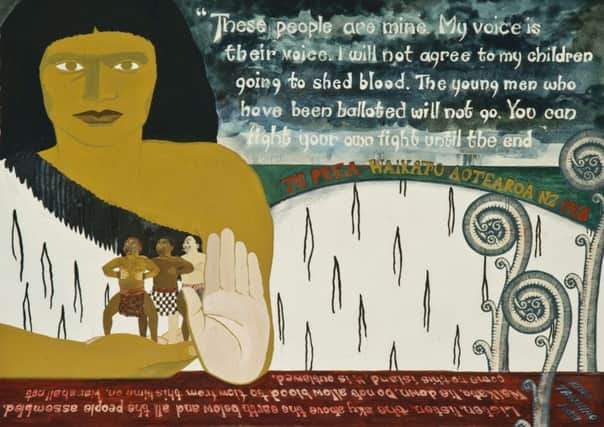Hastings exhibition commemorates resistance to war


The World is My Country runs from Tuesday (October 30) to November 11. It features 10 images by artist Emily Johns, whose work has appeared in Eastbourne’s Towner gallery, the Whitechapel Art Gallery and Department for Transport’s Business Design Centre, as well as eight specially-commissioned poems and songs.
The stories highlighted in the exhibition feature suffragettes and Maori princesses, disobedient soldiers and German munitions workers, and a nonviolent Irish revolutionary. The poems include work by renowned contemporary poets Alan Brownjohn, Anna Robinson and Mererid Hopwood.
Advertisement
Hide AdAdvertisement
Hide AdThe exhibition runs side by side with a second exhibition, Protest & Thrive, inspired by the graphic art of American artist Sister Corita Kent and the protest placards of British peace activist Richard Crump. An open evening for the two exhibitions will take place from 6.30pm to 8.30pm on Saturday, November 3.
The exhibition will be open 11am to 5pm, Tuesday to Sunday. The Arts Forum is closed on Mondays and will also be closed on Saturday, November 10.
On Friday, November 9, from 7pm to 9pm, Emily will be joined by campaigner Gabriel Carlyle for a free talk about the history behind the images and an exploration of the German revolution that accompanied the end of the First World War.
Emily said: “Over the past four years the 100th anniversary of the First World War has seen a tidal wave of events, exhibitions, TV series, books and commemorations. However, one key aspect of the war’s history has received little or no attention: the history and stories of the people and organisations around the world that opposed the conflict, and took action to stop it. This history of police raids and buried documents, feminist peace initiatives and clandestine printing presses, African deserters and revolutionary lion-tamers, remains little-known to the general public. In a world in which resisting militarism and groupthink are still matters of urgency, we need to remember and celebrate this history, as well as the chutzpah of the people who made it.”
In other news: